-
Welcome to rpgcodex.net, a site dedicated to discussing computer based role-playing games in a free and open fashion. We're less strict than other forums, but please refer to the rules.
"This message is awaiting moderator approval": All new users must pass through our moderation queue before they will be able to post normally. Until your account has "passed" your posts will only be visible to yourself (and moderators) until they are approved. Give us a week to get around to approving / deleting / ignoring your mundane opinion on crap before hassling us about it. Once you have passed the moderation period (think of it as a test), you will be able to post normally, just like all the other retards.
You are using an out of date browser. It may not display this or other websites correctly.
You should upgrade or use an alternative browser.
You should upgrade or use an alternative browser.
Squeenix Why do people hate FF XIII, but love FF X?
- Thread starter StaticSpine
- Start date
I liked Zidane from IX and Zack from Chrisis Core, they're both pretty optimistic and good/charismatic guys after all.FF male characters always either gay, narcissists or obnoxious meatheads. Maybe it's why I prefer female characters, I don't have to relate to them and they look better.Me too, but honestly what FF game had a main character that wasn't lame? Cecil was alright, but he was also a war criminal like twice over.I hated Squall already when I was a teenager
Ninjerk
Arcane
- Joined
- Jul 10, 2013
- Messages
- 14,323
FF8 had all the "set pieces" (e.g. world building, art direction), but the plot was really irredeemably awful from what I've heard about it.I hated Squall already when I was a teenager
FF8 actually had some of the best designed areas and a really nice dark theme which was better than most of the FF games. FF8 would've been one of the better games, if they killed off some of the main characters, and didn't make them all come from the same foster home; that was fucking stupid.
AngryEddy
Self-Ejected
FF8 had all the "set pieces" (e.g. world building, art direction), but the plot was really irredeemably awful from what I've heard about it.I hated Squall already when I was a teenager
FF8 actually had some of the best designed areas and a really nice dark theme which was better than most of the FF games. FF8 would've been one of the better games, if they killed off some of the main characters, and didn't make them all come from the same foster home; that was fucking stupid.
Teenage mercenaries, that also go to school at the same time, what could possibly go wrong? It would've been a lot better if they focused on the child soldier angle, and dropped the happy-go-lucky school element out of it. I wouldn't say the story is awful, but it definitely isn't good.
I think the most unforgivable part of FF8 is that neither Seifer, or his lackeys die. Time gets all crazy and fucked up, Seifer gets stabbed by swords and dissolved by super magic for 3 fights in a row, and there he is at the end, fishing like he's just some Joe citizen.
Last edited:
Lemming42
Arcane
Duraframe300
Arcane
- Joined
- Dec 21, 2010
- Messages
- 6,395
FF 8 didn't have darker themes than other FF games.
Xor
Arcane
- Joined
- Jan 21, 2008
- Messages
- 9,345
![The Year of Incline [2014] Codex 2014](/forums/smiles/campaign_tags/campaign_incline2014.png)






Yeah, FF8 had way too many things going on - there was the whole child soldier angle, the fairy tale angle with the witches, the love stories, Rinoa and her inexplicable ability to send people back in time, the whole time compression shenanigans with Ultimecia...
If the game wanted to be good, it should have focused on one of those elements, with maybe a second one in the background to make things more interesting. Preferably not the love story because that was arguably the worst part of the game.
FF8's combat system was also trivially easy to break, especially once you figured out you could spam the 'next party member' button until you got a limit break. And I still maintain a system where you want to actively avoid leveling up is doing something horribly wrong.
If the game wanted to be good, it should have focused on one of those elements, with maybe a second one in the background to make things more interesting. Preferably not the love story because that was arguably the worst part of the game.
FF8's combat system was also trivially easy to break, especially once you figured out you could spam the 'next party member' button until you got a limit break. And I still maintain a system where you want to actively avoid leveling up is doing something horribly wrong.
Modron
Arcane
- Joined
- May 5, 2012
- Messages
- 10,953
The whole actively avoiding leveling was nothing new to the series, people did that stuff in ff6 as well until they got espers that gave nice level up bonuses. Granted that gaming of the system was less spergy than using Seifer at the start to level up whatever they called espers in eight then running from every fight possible.
The problem with the love story is that alot of its development was in essentially optional content. If the player didn't select certain party members during certain side-quests or plot events, then a majority of it, if not all of it, could be skipped entirely by the player. This leaves the plot in an awkward position when a few discs in Squall is suddenly smitten with love for her for no apparent reason.
Ninjerk
Arcane
- Joined
- Jul 10, 2013
- Messages
- 14,323
Well, in FF6 I'd imagine it's more about maximizing games. As I understand with FF8, the enemies scale to your level.The whole actively avoiding leveling was nothing new to the series, people did that stuff in ff6 as well until they got espers that gave nice level up bonuses. Granted that gaming of the system was less spergy than using Seifer at the start to level up whatever they called espers in eight then running from every fight possible.
Damned Registrations
Furry Weeaboo Nazi Nihilist
- Joined
- Feb 24, 2007
- Messages
- 15,759
Well it's not like it matters, since spamming GFs defeats literally every enemy in the game and 90% of bosses, and there's no reason not to since the downside (less money) is totally irrelevant with nothing to spend money on. Junction stuff? Why bother, won't change the damage, hp, or casting speed of your GF.
- Joined
- Jul 14, 2008
- Messages
- 2,159

That's actually fairly interesting. From what I've read over the years, I had always had the impression that the Japanese still adored the Final Fantasy series. Of course that isn't a representation of all the Japanese but it's still surprising to see many of the sentiments there echo the complaints that many westerners have about the recent entries of the series.
AngryEddy
Self-Ejected
FF 8 didn't have darker themes than other FF games.
Never said it was darker, just that the dark themes and the level design were better, for example [spoilers for amount of image files]:
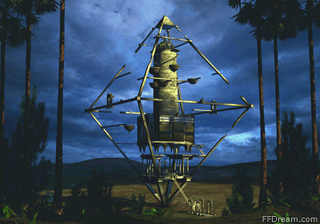
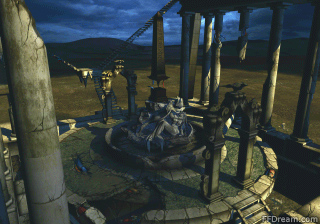
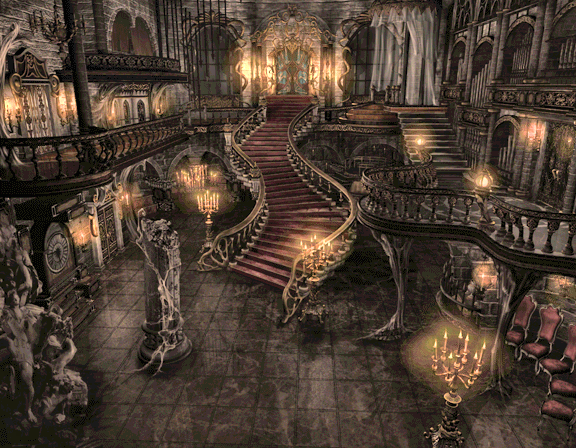
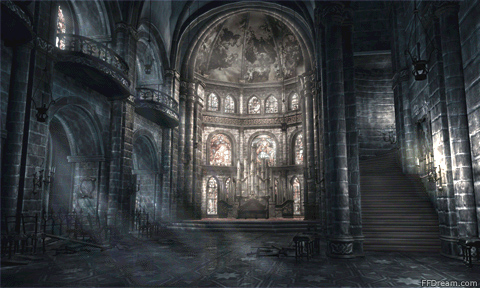
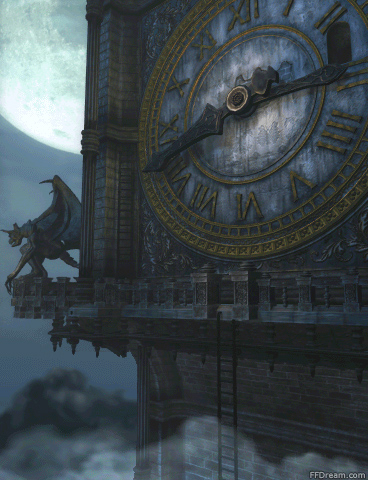
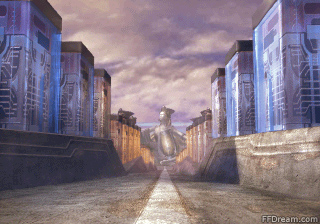

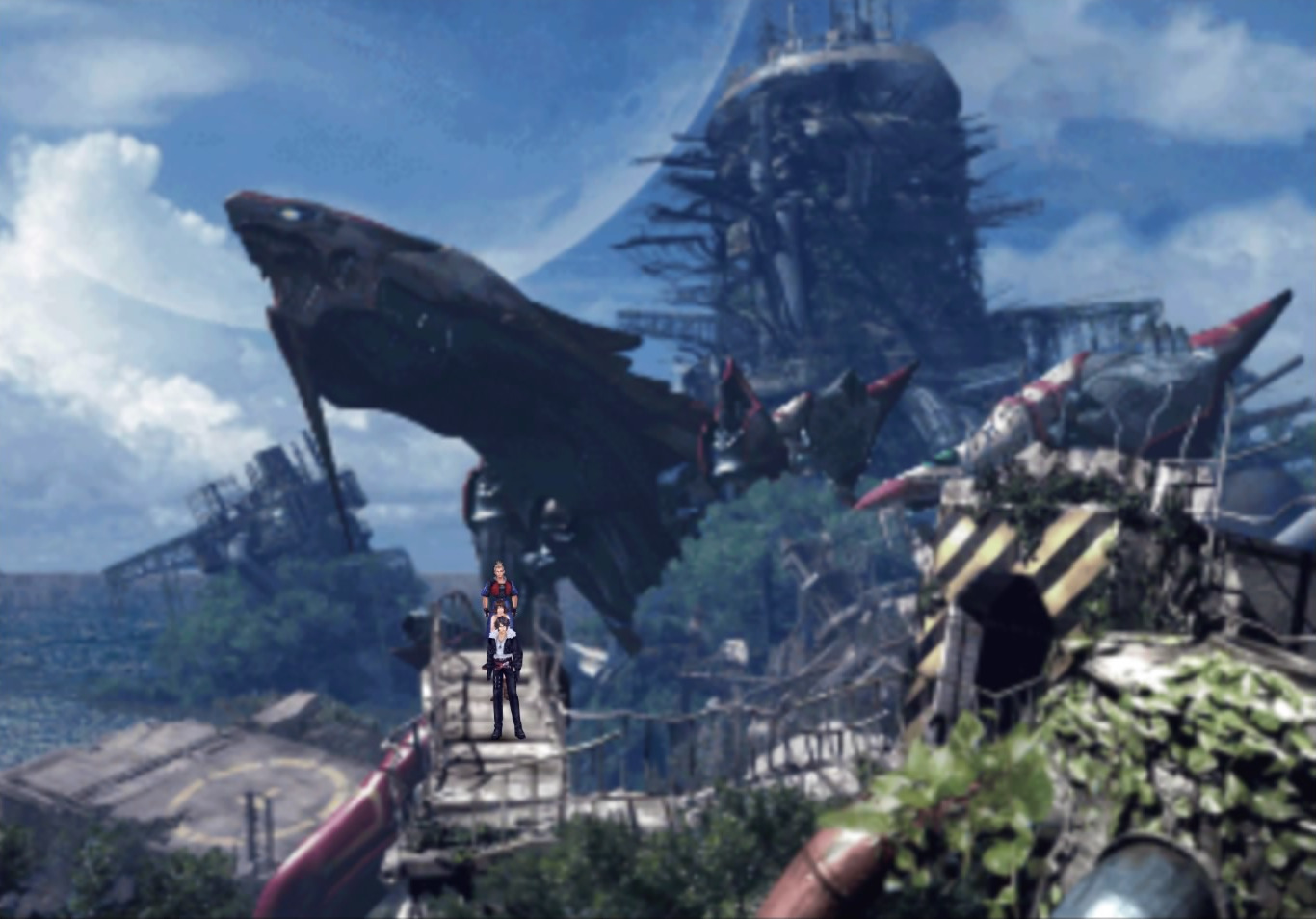
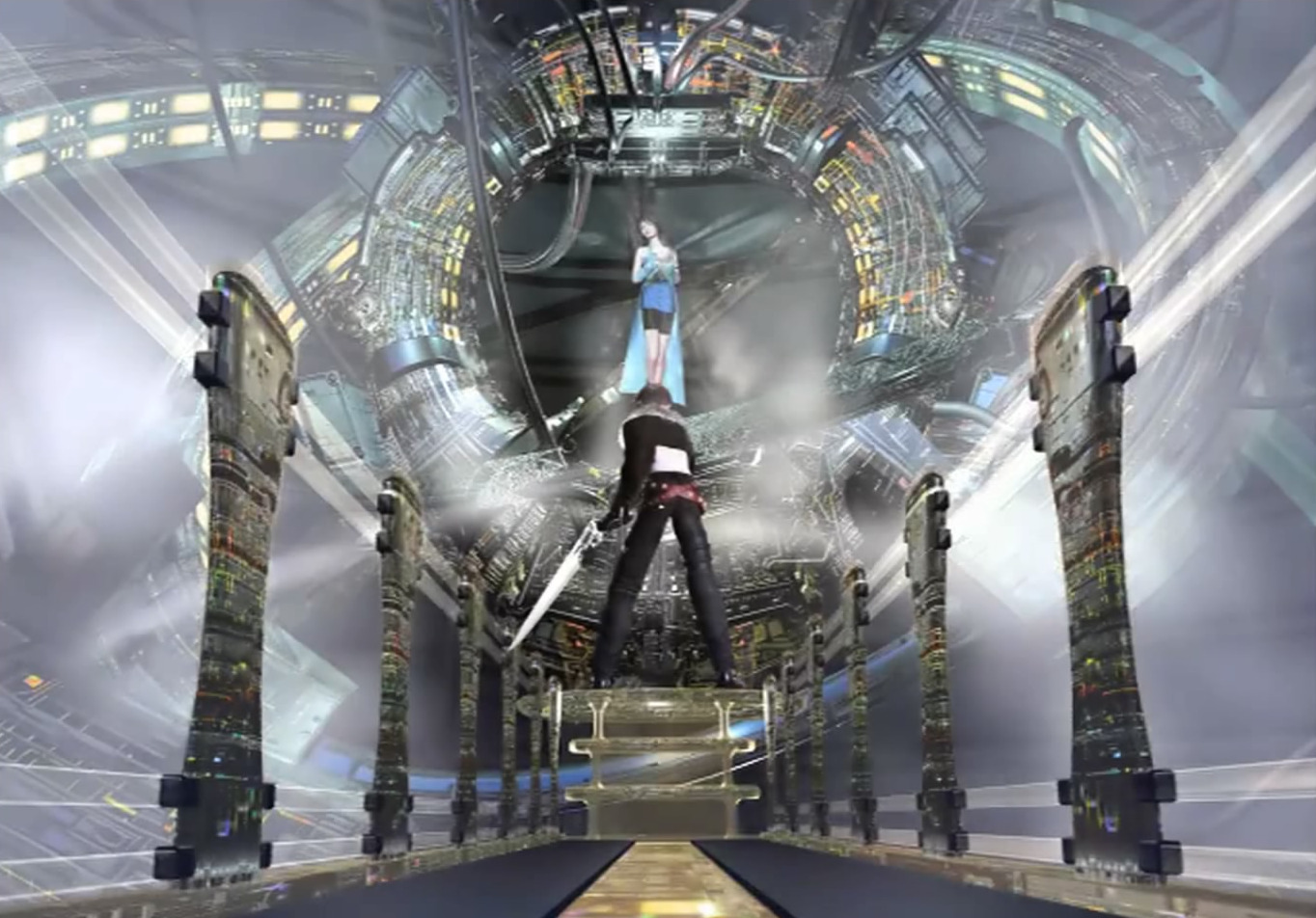
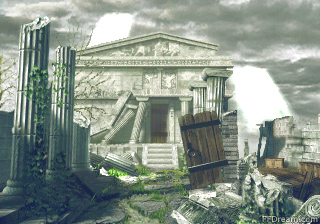

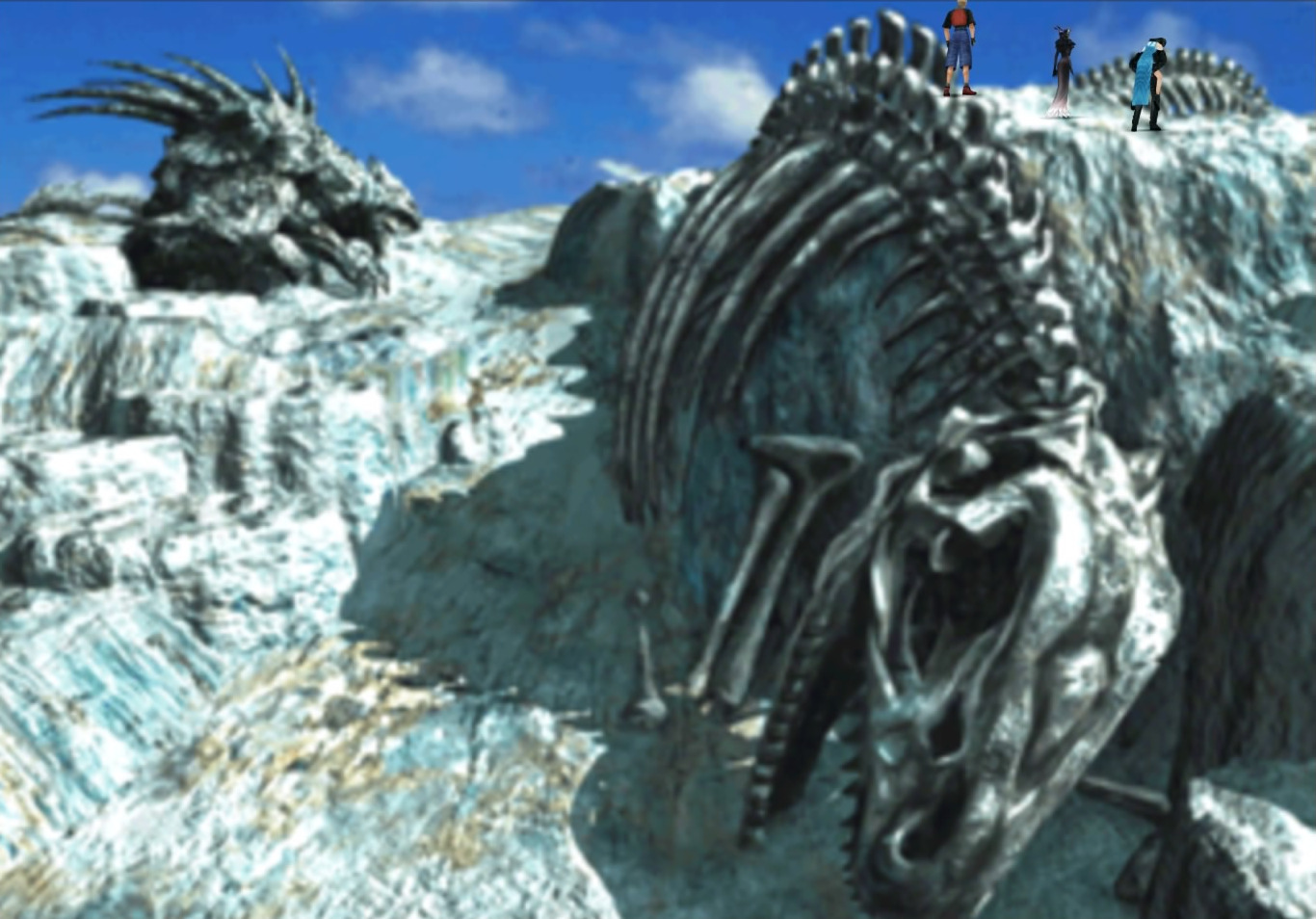
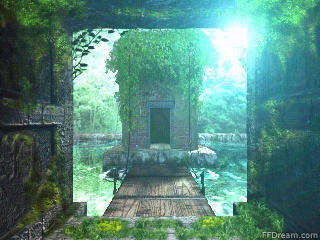
- Joined
- Sep 19, 2008
- Messages
- 2,812
That's actually fairly interesting. From what I've read over the years, I had always had the impression that the Japanese still adored the Final Fantasy series. Of course that isn't a representation of all the Japanese but it's still surprising to see many of the sentiments there echo the complaints that many westerners have about the recent entries of the series.
Keep in mind that 2ch is the Japanese site that inspired 4chan. It's not a mainstream website. Basically, those comments are from the sad sacks who don't have lives in Japan. They'd fit in perfectly here.
Duraframe300
Arcane
- Joined
- Dec 21, 2010
- Messages
- 6,395
FF 8 didn't have darker themes than other FF games.
Never said it was darker, just that the dark themes and the level design were better, for example [spoilers for amount of image files]:













Level Art is arguable, though I don't see whats much better here in terms of actual design. And it definitly did NOT do dark themes better than other games? In fact its themes were so all over the place, that it was a muddled mess. One of the narratives biggest flaws.
Drakron
Arcane
- Joined
- May 19, 2005
- Messages
- 6,326
Yeah, FF8 had way too many things going on -
Yes but ...
there was the whole child soldier angle,
SeeD was created to fight the sorceress because Edea knew what would happen to her, Garden became a mercenary outfit because of Norg funding it and Norg just wanted money.
the fairy tale angle with the witches,
Thats part of the basic plot.
the love stories, Rinoa and her inexplicable ability to send people back in time,
You must be confusing Riona with Ellone.
Ellone also didnt had the ability to send people back in time, she had the ability to send people conscience to the past but not like Untramercia that could possess other sorceress, but that was likely just because how sorceress worked, she could not possess Riona until Edea transferred her powers to her.
the whole time compression shenanigans with Ultimecia...
You mean the actual main plot?
If the game wanted to be good, it should have focused on one of those elements, with maybe a second one in the background to make things more interesting. Preferably not the love story because that was arguably the worst part of the game.
That it did, the plot is Ultramercia attempting to compress time so she would be immortal and the way she attempted to do so was possessing all the sorceress, this isnt hard to understand.
The reason why her plan got complicated was that Adel was sealed and the whole thing was a predestination paradox since there was only one sorceress and Edea did not inherit from Adel, Ultramercia needed to unseal Adel for the time compression that would be impossible if not for Edea being a sorceress that was also impossible without Ultramercia defeat.
Everything else is supporting to that, SeeD was created because Squall end up mentioning it when Edea became a sorceress ... sure you need to pay attention to details but things are linked to each other.
So sorry if the plot actually requires to paying attention, I suppose FF VIII main problem is that IT DIDNT SPELL IT OUT AND SLAPPED THE PLOT IN YOUR FACE and required paying attention.
FF8's combat system was also trivially easy to break, especially once you figured out you could spam the 'next party member' button until you got a limit break. And I still maintain a system where you want to actively avoid leveling up is doing something horribly wrong.
The Junction system worked fine, could be cheesed to some degree like turning Tents into Curaga and junction then to HP fairly on, I had more HP that some early bosses.
Plus enemies did not leveled to the party, not exactly ... some enemies had a autolevel that they would level higher if you are at a certain level range but some also had caps, they would be fixed or were always at higher level and in Ultramercia castle they were at random levels.
Also leveling by itself did little since major stat changes was done by Junction, this was intended and this did related actual leveling to being able to get higher levels of magic thats the really big problem with the system, it require having to draw farming enemies and refining to actually gain meaningful progress and that got old really fast.
Last edited:
I have fond memories of VIII, but I was sixteen years old when it was released, and teenagers are too stupid to judge anything objectively. Even back in the dark ages of the 1990s, though, I disliked VII. The characters were childish caricatures, the writing was bad, Cloud and Sephiroth were missing only matching pairs of trenchcoats and Hot Topic t-shirts to complete their obnoxious emo repertoires (not that this didn't also apply to Squall to a certain extent, but in my view he wasn't nearly as bad), the battle system was simplistic, and the story was convoluted anime nonsense (though in fairness, that last is to be expected). The game's atmosphere and sense of mystery and adventure were decent, but that's about all it had going for it.
As far as I can discern, the main reason VII became wildly popular was due to its 3D graphics and FMV sequences. VI was a far superior game in absolutely every way (which now includes the graphics, ironically enough, since VII's early 3D has aged horribly), so that's the only reasonable conclusion I can draw.
My point is that while I can absolutely understand why people disliked VIII, I cannot fathom why many of those same people also claim to like VII. It's just ludicrous. I suspect that console-only players who'd never owned or had access to a PC and/or anime fans were likely to be much more taken with the game than those of us who weren't weeaboos and who'd been playing PC games throughout the 1990s. Fallout was released the same year Final Fantasy VII was, for God's sake.
I also remember enjoying X quite a lot, but now that I'm playing the HD Remaster, I'm reminded that I was still nineteen years old at the time. It's a fairly decent Final Fantasy game, but it's nothing special.
Well, here's my final word on the main series, allowing for personal preference, whimsy, faulty memory, and/or nostalgia goggles:

As far as I can discern, the main reason VII became wildly popular was due to its 3D graphics and FMV sequences. VI was a far superior game in absolutely every way (which now includes the graphics, ironically enough, since VII's early 3D has aged horribly), so that's the only reasonable conclusion I can draw.
My point is that while I can absolutely understand why people disliked VIII, I cannot fathom why many of those same people also claim to like VII. It's just ludicrous. I suspect that console-only players who'd never owned or had access to a PC and/or anime fans were likely to be much more taken with the game than those of us who weren't weeaboos and who'd been playing PC games throughout the 1990s. Fallout was released the same year Final Fantasy VII was, for God's sake.
I also remember enjoying X quite a lot, but now that I'm playing the HD Remaster, I'm reminded that I was still nineteen years old at the time. It's a fairly decent Final Fantasy game, but it's nothing special.
Well, here's my final word on the main series, allowing for personal preference, whimsy, faulty memory, and/or nostalgia goggles:
So... if attached to the thread title, why is X in Mid Tier and XIII in SHIT TIER?
So... if attached to the thread title, why is X in Mid Tier and XIII in SHIT TIER?
Brain fart. I misconstrued XIII as VIII. The content of my post is fine as-is, though, since my opinion's the same regardless.
As far as why X is better than XIII, well, there's a lot more extra stuff to do in X, it's properly turn-based, there are towns to explore, there are puzzles that you actually have to think (slightly) to solve, there are hidden items and such that take effort to find, etc. The environmental design in X is arguably better, and the game retains a classic Final Fantasy feel, unlike XIII. XIII is one long, painfully linear combat corridor except for the very end. And frankly, while both stories are silly, I feel that X's characters and story are superior.
It may not sound like all that much, but it makes a huge difference. At least, it does to me. Even so, X is only average as indicated on my tier list.
Last edited:
Ninjerk
Arcane
- Joined
- Jul 10, 2013
- Messages
- 14,323
As far as I can discern, the main reason VII became wildly popular was due to its 3D graphics and FMV sequences. VI was a far superior game in absolutely every way (which now includes the graphics, ironically enough, since VII's early 3D has aged horribly), so that's the only reasonable conclusion I can draw.
My point is that while I can absolutely understand why people disliked VIII, I cannot fathom why many of those same people also claim to like VII. It's just ludicrous. I suspect that console-only players who'd never owned or had access to a PC and/or anime fans were likely to be much more taken with the game than those of us who weren't weeaboos and who'd been playing PC games throughout the 1990s. Fallout was released the same year Final Fantasy VII was, for God's sake.
Reposting my first entry into the RPGCodex (for context, a previous poster had said that in his youth that he though FF7 was the greatest game ever, I'm not saying it is or isn't):
As with many of the "best games of all time" (or any medium really, e.g. Citizen Kane), context is key.
When I was a kid, I didn't have much access to video games outside of what my cousin bought or borrowed from his brother's friends so my previous RPG experience at that time was, I think, limited to Final Fantasy 4 (which we called 2 back then, jumping to 7 was somewhat confusing), maybe Legend of Legaia by that point, and 7th Saga. Compare the character development between something like FF4 and FF7. The size of the script alone means that each of the characters (save Aeris) has pretty exhaustive amount of growth comparatively. I think Cloud's character development, specifically, was terribly important to the success of the game.
In Final Fantasy 4, Cecil takes up a profession (his Dark Knight character class, or w/e it was called) at the behest of his king and acts in a manner that increasingly conflicts with his values. Eventually he is tasked with confronting his loyalties and ultimately himself (quite literally).
When we are introduced to Cloud, we are presented with a pretty straightforward character: he's molded from what we are made to believe is the most elite organization of fighters in the game world (ie. He's a really tough bro!), but has long since left and lives to make money from his skillset and, most importantly, holds allegiance to no one. As the game progresses, this character is subjected to a number of challenges from the environmental plight in the world (which, although obviously transparently topical, was very apt and still is) to his masculinity (infiltrating Don Corneo's mansion). We just hadn't seen this type of thing before, and this is all pretty plainly spelled out on Disc 1before we really even know who Cloud is! When we find out who Cloud really is, he ends up being a conflicted and fairly complex character, and the complexity isn't limited to Cloud. Identity is a really big deal in this game, and it extends far beyond Cloud's.
The only character that is really pure in this game is Aeris, and look what happens to her! Killing characters off had been done before, but it was done more graphically in Final Fantasy 7 (which is more thanks to the 2D to 3D transition, if FF7 hadn't done it, someone else probably would have) and her character was unique in that the audience really wasn't given any reasons to dislike her. She's adventurous (she helps infiltrate Don Corneo's mansion when she'd probably be safer minding her own business and watching out for the Shinra), she is one of the few people in the game that brings something unique and beautiful to the slums (flowers in the church), and she's useful in combat to boot (her Level 1 heal Limit Break was crazy-useful in fighting the roller boss at the end of the Midgar portion)! The designers were very careful about getting the player attached to her before Disc 1 ends.
I won't gush too much more about the characters except to say that the rest of the characters are fairly conflicted about their past (Cait Sith's true identity and doing good as a civil servant vs. being complicit in a system that is destroying lives as well as the planet, Red XIII's beliefs about his parents that could extend, really, to anyone in a non-nuclear family, Barrett's choice of progress over tradition and what it cost him and community he grew up in, etc).
I doubt FF7 was the first to incorporate minigames, but it did so extremely well. Several of the minigames are introduced in the natural flow of the gameplay and are wholly independent systems. The first time we play the motorcycle minigame, although the player's performance does effect the coming boss battle to a certain degree, the player's success within the game system itself isn't reliant on anything the player had done previously to improve their characters, and it was actually fun. Not only does it break up the somewhat monotonous combat (up to that point at least, arguably monotonous throughout the game), but the game is reintroduced in Gold Saucer later so that anytime we can get to Gold Saucer we can play it again whenever we want(and avoid keeping a save in the Shinra building forever and ever). I played the submarine game probably more than the motorcycle game, too.
I'm kind of losing focus here so I'll leave you with this final thought: Final Fantasy 7 kind of did for the jRPG what Ocarina of Time did for ARPGs, Mario 64 did for platformers, [insert your favorite game from additional genres here] etc. It did a lot of things that jRPGs still mimic and it really came along at the exact right time when the industry made the change from 2D to 3D and the increase in raw data storage increased with the CD format.
I also like this little article about it: http://www.1up.com/features/five-things-final-fantasy-vii-remake
W
hat's the biggest cocktease in gaming? Probably Half-Life 3. But the second biggest would be Square Enix's constant, coy mentions of a Final Fantasy VII remake. They know fans want it; they cheerfully fan the flames with things like the FFVII "White Engine" demo from E3 2005; they make constant leading comments about it. And yet... they never deliver.
Maybe they will, someday; maybe they won't. Yet should that long-awaited remake arrive, one thing we can be certain of is that it won't be a straightforward up-rezzing of the original PlayStation game. Have you played FFVII lately? It's quite, shall we say, inconsistent. A mish-mash of different art styles, narrative techniques, and some downright weirdness make FFVII a tough game to reinterpret with contemporary tech. For every moment that would translate perfectly to HD -- like the oh-so-iconic introduction Square used for its White Engine demo -- there's one that is better left buried. And that's not to mention all those parts that just come across as awkward all on their own steam.
We'd love to see a Final Fantasy remake as much as the next guy, but you can be sure the following elements won't make the cut when Square Enix finally bites the bullet and gives fans the HD FFVII they've been demanding. For better or for worse, they just don't fit the nature of the series and the medium these days.

Straight-Up Acts of Terrorism by the Protagonists
Cloud Strife, Barrett Wallace, Tifa Lockheart: True heroes all, right? They save the world's life energy from the depredations of the Shinra corporation, stop the mad Sephiroth from smashing a meteor into the planet, and beat down a few thousand marauding monsters of varying threat levels. How noble! Sure... except for the fact that in the very beginning, the Avalanche organization for which they work is a collective of terrorists, pure and simple. Cloud and company begin the game by infiltrating a power planet, fighting through a corps of guards, and blowing up a reactor that powers a huge portion of the city of Midgar, killing who knows how many people in the process.
Maybe that flew back in 1997, but it's hard to imagine Square having the courage to present its protagonists in such a negative light these days. The world has grown considerably more sensitive to terrorists in the wake not only of the September 11 attacks but the numerous other terrorists actions that have spread across the globe in the past decade. On some level, FFVII's story felt like something of a reaction to the 1995 sarin gas attacks in the Tokyo metro system perpetrated by the Aum Shinrikyo cult, but our cultural gatekeepers have grown overly sensitive in the past 15 years. Look at all the games that were cancelled or delayed in the wake of last year's devastating Tohoku earthquake. Timidity and forced sensitivity rule the media today, which makes it hard to imagine Cloud and Barrett nuking a reactor in HD.

Those Stupid Minigames
Final Fantasy V featured a few special events sequences -- the escape from Karnak, the battle on the Big Bridge, etc. -- that stood apart from the game's standard mechanics. Its sequel, FFVI, took that concept a step further with its unique group battles (e.g., the defense of Narshe) and the opera sequence. FFVII took a leap beyond that by offering some of gaming's first standalone minigames. While Super Mario RPG probably has a claim to being the first RPG to properly incorporate minigames, FFVII featured more of them, and a greater variety to boot.
But here's the thing: They weren't very fun. The Gold Saucer events were fairly reasonable, seeing that while they weren't much good they at least were optional. But the rest -- be it defending a mountain with toy soldiers or interminably performing CPR on a drowning child long after she should have been brain-dead -- felt intrusive and out of place. Nothing says "tonal dissonance" like boogie-boarding down a mountain and collecting balloons shortly after your hot date gets impaled with a sword the length of a flatbed truck by an insane villain. Thankfully, Square has increasingly moved away from fully integrated minigames in the Final Fantasy series and largely reserves those events for the sidelines. Sahz's Final Fantasy XIII-2 sidestory sucked, but hey: It was DLC. And with any luck, that would be the case for FFVII's lamest moments. Like grinding your way through dozens of tedious chocobo races in order to win the Knights of the Round Materia.

Weird Stuff
If you go back and replay FFVII with a more mature eye than you had back in 1997, you'll realize that the game can be downright weird at times. Remember that part where Barrett (the huge, angry dude with a gun for a hand) dressed up in a sailor suit while the feline Red XIII wobbled about the deck of a ship on two feet? Remember that couple that inexplicably passed out at the train station after spouting what appeared to be random innuendo? Or how about the part where Cloud started talking to the player before looking up to the on-screen cursor and sputtering, "What the hell? Finger?"
That stuff was pretty strange, right? Much too weird to fly in a modern Final Fantasy game. Let's face it: Square takes itself a lot more seriously these days. There may have been some parts inFFXIII that you laughed at, but the humor wasn't deliberate. Somehow Square Enix wrote a 60-hour game without a single real joke to be found. Have you slogged your way through any of the Compilation of Final Fantasy VII material, like Dirge of Cerberus or Advent Children? Grim, joyless stuff. There's no room for humor in Square's revisionist version of Final Fantasy VII, so you can forget all about Cloud breaking the fourth wall or going on an awkward man-date with Barrett. FFVII is serious business.

A Nuanced, Interesting Cloud Strife
And no one in Final Fantasy VII is more serious than Cloud Strife. At least, that's what all the post-release content tells me. Cloud is the definitive solemn hero, weighed down by the oh-so-grim reality of his own existence. Watch him stumble sadly through Crisis Core! See him mope his way through another fight with Sephiroth in Advent Children! See him proclaim meaningfully in Dissidia! Cloud doesn't fool around.
Except those supplemental projects kind of miss the entire point of Cloud Strife and focus on a hyper-limited slice of his actual personality. In FFVII, Cloud starts out as a cocky, sarcastic jerk; in time, he begins to lose sight of his own self and literally begs his enemies to give him purpose; and eventually, he comes to terms with his own true past (he was a small-town boy who didn't make the cut to become an elite warrior and adopted the persona of his friend and hero a little too well) and finally makes peace with himself and his friends. Cloud's is a broad, complex tale, and his personality is too subtle to easily describe with a single generalization. Nevertheless, that's precisely what every official take on the character has done since FFVII: Reduce him to a sulky child. In Advent Children, Square Enix actually rolled back all of the character development he experienced in the course of FFVII and reverted him to a bland caricature of his initial self.
It's not hard to imagine that this would be the extent of Cloud's characterization in a remake of FFVII, too. For whatever reason, Square seems to have decided that the best way to present Cloud is to make him this ultra-emo man child. The problem is, that's not why everyone liked him! We liked him because he was a hero with a hard edge, a no-nonsense fighter with a pragmatic personality and yet a keen sense of humor, too. Yet you never see Cloud presented that way in FFVII's spin-offs and sequels. And, one suspects, we probably wouldn't see him that way in a new version of FFVII, either.

The Honeybee Manor
Midway through the Midgar sequence of the game, Cloud sees his childhood friend Tifa in a strange outfit riding a cart to what basically amounts to a sex dungeon: The Honeybee Manor. Red flag! Would Square Enix really include a sex dungeon in a Final Fantasy VII remake? Probably not.
But let's say they did. The problem with the Honeybee Manor is that Cloud can only get in if he goes in disguise as a woman. And the process of earning that disguise involves buying mysterious medical supplies for a man in a sleazy hotel, doing push-ups for a strange muscleman who keeps a woman's wig in his briefs, and other unsavory acts. Red flag!
And once you're inside, Cloud gets ogled by other dudes. And, should you play the cards right, he gets to splash around in a hot tub with a bunch of muscular guys, passes out, and wakes up in inky blackness, exclaiming about strange sensations. Red. Flag.
Eventually, Cloud meets up with both Aeris and Tifa, both of whom narrowly escape from molestation. They go after the don of the slums, Don Corneo, a fat dude who makes humping motions until they threaten to mutilate his genitals.
In short, the Honeybee Manor constitutes a 30-minute sequence that would go over like a fart in church these days. But that's just as well. Do you really want to see a weightlifter pull a wig out of his underwear and stick it on Cloud's head in full HD? There's a word to describe that image, and that word is, "Barf."
hat's the biggest cocktease in gaming? Probably Half-Life 3. But the second biggest would be Square Enix's constant, coy mentions of a Final Fantasy VII remake. They know fans want it; they cheerfully fan the flames with things like the FFVII "White Engine" demo from E3 2005; they make constant leading comments about it. And yet... they never deliver.
Maybe they will, someday; maybe they won't. Yet should that long-awaited remake arrive, one thing we can be certain of is that it won't be a straightforward up-rezzing of the original PlayStation game. Have you played FFVII lately? It's quite, shall we say, inconsistent. A mish-mash of different art styles, narrative techniques, and some downright weirdness make FFVII a tough game to reinterpret with contemporary tech. For every moment that would translate perfectly to HD -- like the oh-so-iconic introduction Square used for its White Engine demo -- there's one that is better left buried. And that's not to mention all those parts that just come across as awkward all on their own steam.
We'd love to see a Final Fantasy remake as much as the next guy, but you can be sure the following elements won't make the cut when Square Enix finally bites the bullet and gives fans the HD FFVII they've been demanding. For better or for worse, they just don't fit the nature of the series and the medium these days.

Straight-Up Acts of Terrorism by the Protagonists
Cloud Strife, Barrett Wallace, Tifa Lockheart: True heroes all, right? They save the world's life energy from the depredations of the Shinra corporation, stop the mad Sephiroth from smashing a meteor into the planet, and beat down a few thousand marauding monsters of varying threat levels. How noble! Sure... except for the fact that in the very beginning, the Avalanche organization for which they work is a collective of terrorists, pure and simple. Cloud and company begin the game by infiltrating a power planet, fighting through a corps of guards, and blowing up a reactor that powers a huge portion of the city of Midgar, killing who knows how many people in the process.
Maybe that flew back in 1997, but it's hard to imagine Square having the courage to present its protagonists in such a negative light these days. The world has grown considerably more sensitive to terrorists in the wake not only of the September 11 attacks but the numerous other terrorists actions that have spread across the globe in the past decade. On some level, FFVII's story felt like something of a reaction to the 1995 sarin gas attacks in the Tokyo metro system perpetrated by the Aum Shinrikyo cult, but our cultural gatekeepers have grown overly sensitive in the past 15 years. Look at all the games that were cancelled or delayed in the wake of last year's devastating Tohoku earthquake. Timidity and forced sensitivity rule the media today, which makes it hard to imagine Cloud and Barrett nuking a reactor in HD.

Those Stupid Minigames
Final Fantasy V featured a few special events sequences -- the escape from Karnak, the battle on the Big Bridge, etc. -- that stood apart from the game's standard mechanics. Its sequel, FFVI, took that concept a step further with its unique group battles (e.g., the defense of Narshe) and the opera sequence. FFVII took a leap beyond that by offering some of gaming's first standalone minigames. While Super Mario RPG probably has a claim to being the first RPG to properly incorporate minigames, FFVII featured more of them, and a greater variety to boot.
But here's the thing: They weren't very fun. The Gold Saucer events were fairly reasonable, seeing that while they weren't much good they at least were optional. But the rest -- be it defending a mountain with toy soldiers or interminably performing CPR on a drowning child long after she should have been brain-dead -- felt intrusive and out of place. Nothing says "tonal dissonance" like boogie-boarding down a mountain and collecting balloons shortly after your hot date gets impaled with a sword the length of a flatbed truck by an insane villain. Thankfully, Square has increasingly moved away from fully integrated minigames in the Final Fantasy series and largely reserves those events for the sidelines. Sahz's Final Fantasy XIII-2 sidestory sucked, but hey: It was DLC. And with any luck, that would be the case for FFVII's lamest moments. Like grinding your way through dozens of tedious chocobo races in order to win the Knights of the Round Materia.

Weird Stuff
If you go back and replay FFVII with a more mature eye than you had back in 1997, you'll realize that the game can be downright weird at times. Remember that part where Barrett (the huge, angry dude with a gun for a hand) dressed up in a sailor suit while the feline Red XIII wobbled about the deck of a ship on two feet? Remember that couple that inexplicably passed out at the train station after spouting what appeared to be random innuendo? Or how about the part where Cloud started talking to the player before looking up to the on-screen cursor and sputtering, "What the hell? Finger?"
That stuff was pretty strange, right? Much too weird to fly in a modern Final Fantasy game. Let's face it: Square takes itself a lot more seriously these days. There may have been some parts inFFXIII that you laughed at, but the humor wasn't deliberate. Somehow Square Enix wrote a 60-hour game without a single real joke to be found. Have you slogged your way through any of the Compilation of Final Fantasy VII material, like Dirge of Cerberus or Advent Children? Grim, joyless stuff. There's no room for humor in Square's revisionist version of Final Fantasy VII, so you can forget all about Cloud breaking the fourth wall or going on an awkward man-date with Barrett. FFVII is serious business.

A Nuanced, Interesting Cloud Strife
And no one in Final Fantasy VII is more serious than Cloud Strife. At least, that's what all the post-release content tells me. Cloud is the definitive solemn hero, weighed down by the oh-so-grim reality of his own existence. Watch him stumble sadly through Crisis Core! See him mope his way through another fight with Sephiroth in Advent Children! See him proclaim meaningfully in Dissidia! Cloud doesn't fool around.
Except those supplemental projects kind of miss the entire point of Cloud Strife and focus on a hyper-limited slice of his actual personality. In FFVII, Cloud starts out as a cocky, sarcastic jerk; in time, he begins to lose sight of his own self and literally begs his enemies to give him purpose; and eventually, he comes to terms with his own true past (he was a small-town boy who didn't make the cut to become an elite warrior and adopted the persona of his friend and hero a little too well) and finally makes peace with himself and his friends. Cloud's is a broad, complex tale, and his personality is too subtle to easily describe with a single generalization. Nevertheless, that's precisely what every official take on the character has done since FFVII: Reduce him to a sulky child. In Advent Children, Square Enix actually rolled back all of the character development he experienced in the course of FFVII and reverted him to a bland caricature of his initial self.
It's not hard to imagine that this would be the extent of Cloud's characterization in a remake of FFVII, too. For whatever reason, Square seems to have decided that the best way to present Cloud is to make him this ultra-emo man child. The problem is, that's not why everyone liked him! We liked him because he was a hero with a hard edge, a no-nonsense fighter with a pragmatic personality and yet a keen sense of humor, too. Yet you never see Cloud presented that way in FFVII's spin-offs and sequels. And, one suspects, we probably wouldn't see him that way in a new version of FFVII, either.

The Honeybee Manor
Midway through the Midgar sequence of the game, Cloud sees his childhood friend Tifa in a strange outfit riding a cart to what basically amounts to a sex dungeon: The Honeybee Manor. Red flag! Would Square Enix really include a sex dungeon in a Final Fantasy VII remake? Probably not.
But let's say they did. The problem with the Honeybee Manor is that Cloud can only get in if he goes in disguise as a woman. And the process of earning that disguise involves buying mysterious medical supplies for a man in a sleazy hotel, doing push-ups for a strange muscleman who keeps a woman's wig in his briefs, and other unsavory acts. Red flag!
And once you're inside, Cloud gets ogled by other dudes. And, should you play the cards right, he gets to splash around in a hot tub with a bunch of muscular guys, passes out, and wakes up in inky blackness, exclaiming about strange sensations. Red. Flag.
Eventually, Cloud meets up with both Aeris and Tifa, both of whom narrowly escape from molestation. They go after the don of the slums, Don Corneo, a fat dude who makes humping motions until they threaten to mutilate his genitals.
In short, the Honeybee Manor constitutes a 30-minute sequence that would go over like a fart in church these days. But that's just as well. Do you really want to see a weightlifter pull a wig out of his underwear and stick it on Cloud's head in full HD? There's a word to describe that image, and that word is, "Barf."
This fellow has a pretty good writeup about it (and the rest of the series) as well.
AngryEddy
Self-Ejected
Your list stinks. DIE.














